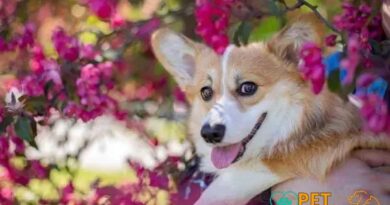What is Variety of breeds
What is Variety of Breeds?
The term “variety of breeds” refers to the diverse classifications of dog breeds that exist worldwide. Each breed has unique characteristics, traits, and behaviors that distinguish them from one another. Understanding the variety of breeds is essential for dog lovers, breeders, and anyone considering adding a canine companion to their family. This diversity is a result of selective breeding practices that have evolved over centuries, aimed at enhancing specific traits such as size, temperament, and purpose.
Types of Dog Breeds
Dog breeds can be categorized into several groups based on their characteristics and intended functions. The American Kennel Club (AKC) recognizes various groups, including sporting, hound, working, terrier, toy, non-sporting, herding, and miscellaneous breeds. Each group serves different purposes, from hunting and herding to companionship and protection. Understanding these categories helps potential dog owners choose a breed that aligns with their lifestyle and preferences.
Sporting Breeds
Sporting breeds are known for their energetic and friendly nature, making them excellent companions for active families. Breeds like the Labrador Retriever, Golden Retriever, and Cocker Spaniel fall into this category. These dogs are often used in hunting and field trials due to their keen sense of smell and ability to retrieve game. Their high energy levels require regular exercise and mental stimulation, making them ideal for outdoor enthusiasts.
Hound Breeds
Hound breeds are characterized by their strong sense of smell and hunting instincts. This group includes breeds such as the Beagle, Bloodhound, and Dachshund. Hounds are often used for tracking and hunting due to their exceptional olfactory abilities. They tend to be independent and can sometimes exhibit stubbornness, which requires patient training and socialization to ensure they develop into well-behaved pets.
Working Breeds
Working breeds are known for their intelligence and strength, often used in roles such as guarding, pulling sleds, and search-and-rescue operations. Breeds like the Rottweiler, Siberian Husky, and Boxer exemplify this group. These dogs are highly trainable and thrive on having a job to do, making them suitable for active owners who can provide them with the necessary physical and mental challenges.
Terrier Breeds
Terrier breeds are small to medium-sized dogs known for their feisty and energetic personalities. Breeds such as the Jack Russell Terrier, Bull Terrier, and Scottish Terrier belong to this category. Terriers were originally bred for hunting vermin, and their tenacity and determination are evident in their playful and sometimes stubborn behavior. They require consistent training and socialization to channel their energy positively.
Toy Breeds
Toy breeds are the smallest of dog breeds, often favored for their compact size and affectionate nature. Breeds like the Chihuahua, Pomeranian, and Yorkshire Terrier are popular choices for those living in apartments or smaller homes. Despite their small stature, toy breeds can have big personalities and require socialization and training to ensure they are well-adjusted companions.
Non-Sporting Breeds
The non-sporting group encompasses a diverse range of breeds that do not fit neatly into other categories. Breeds such as the Bulldog, Dalmatian, and Poodle are included in this group. These dogs vary significantly in size, appearance, and temperament, making it essential for prospective owners to research individual breeds to find a suitable match for their lifestyle.
Herding Breeds
Herding breeds are known for their intelligence and ability to control the movement of other animals. Breeds like the Border Collie, Australian Shepherd, and German Shepherd excel in herding tasks and are often used in agricultural settings. These dogs are highly trainable and require regular exercise and mental challenges to keep them happy and healthy.
The Importance of Breed Variety
Understanding the variety of breeds is crucial for making informed decisions about dog ownership. Each breed comes with its own set of needs, characteristics, and potential health issues. By recognizing the diversity within dog breeds, prospective owners can choose a breed that fits their lifestyle, ensuring a harmonious relationship between the dog and its family. Additionally, breed variety contributes to the overall health and genetic diversity of the canine population, which is vital for the long-term sustainability of dog breeds.



